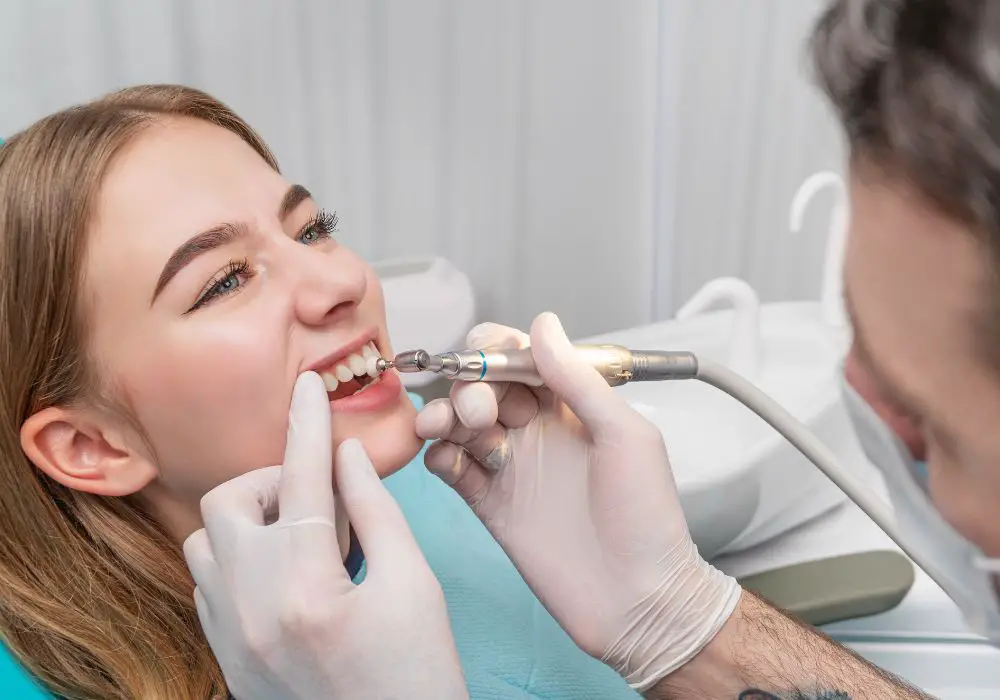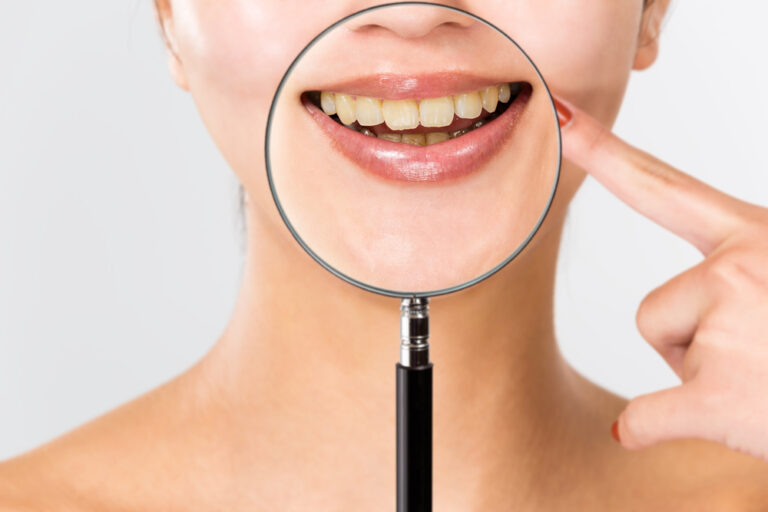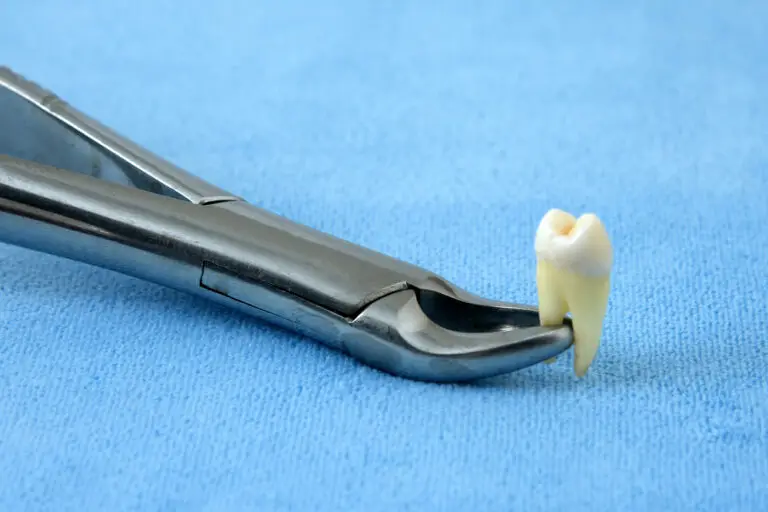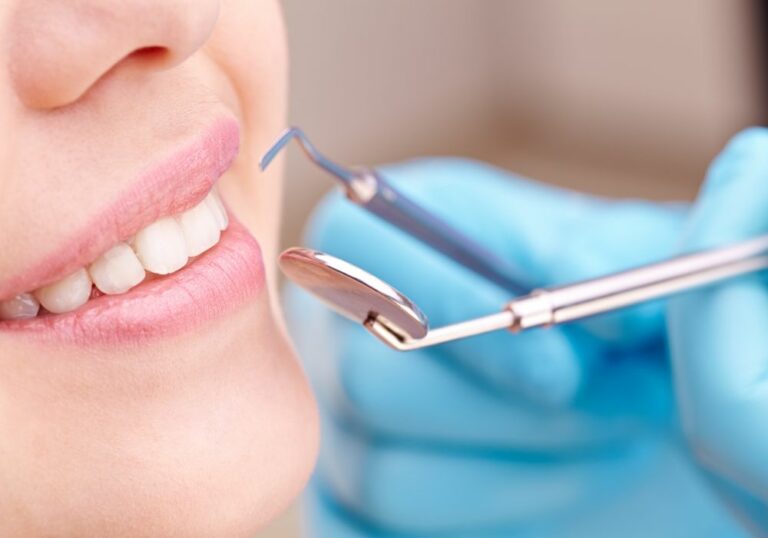Having a sensitive tooth after getting a dental crown placed can be unpleasant and concerning. A dental crown covers and protects a tooth that has been damaged or decayed. Getting a crown should stop or reduce tooth sensitivity. So why might you still have a sensitive tooth after a crown procedure?
There are several potential reasons why your crowned tooth may still feel sensitive or painful for a period of time. The good news is that post-crown sensitivity is usually temporary and there are solutions to help reduce discomfort until the tooth nerve calms down.
What causes tooth sensitivity after a crown procedure?

Below are detailed explanations of the main causes of ongoing tooth sensitivity after having a crown placement:
Inflamed nerve
The most common reason for sensitivity following a crown preparation is irritation or inflammation of the inner tooth nerve (pulp).
- How does nerve inflammation happen?
To fit the crown perfectly, the dentist has to remove some of the outer enamel and underlying dentin layers of the tooth. This is called crown preparation and involves drilling and reshaping the visible parts of the tooth.
The inner pulp chamber containing nerves and blood vessels is separated from the outer layers by a thin barrier of remaining dentin. Removing too much dentin during crown prep, or heat generated from the drill friction can potentially penetrate this barrier and hit the pulp tissue underneath.
Even if the pulp isn’t directly exposed, the vibrations and pressure from drilling can still traumatize and inflame the tooth nerve. Chemical sensitivity to temporary cements used can also cause pulp irritation.
- Signs of an inflamed tooth nerve
Nerve inflammation usually causes sensitivity when eating or drinking hot, cold or sweet foods. It may just twinge mildly or cause a sharp pain that lingers for several minutes.
Severe nerve inflammation can make the tooth extremely painful to any touch or temperature change. It may also throb constantly on its own.
- How inflammation causes sensitivity
When the nerve is aggravated and inflamed, fluid buildup inside the pulp chamber puts pressure on the sensitive nerve fibers. This is what creates pain signals that feel like sensitivity.
An inflamed tooth is also less able to withstand hot and cold temperatures or pressure. Things that normally wouldn’t bother it now trigger discomfort and sensitivity.
- Treating an irritated tooth nerve
The good news is an inflamed nerve just needs time to calm down and recover once the irritation source is removed.
After a crown placement, avoid chewing on that side until tenderness improves. Using pain medication and desensitizing toothpaste can help manage discomfort.
Within a few days or weeks, the inflammation should decrease, fluid will get reabsorbed, and sensitivity to hot and cold will gradually fade.
If sensitivity persists beyond 3-4 weeks, contact your dentist. They can check for cracks or fit issues. More extensive dental treatments like root canals may be needed if the pulp inflammation is severe.
Improper crown fit

Sometimes post-crown sensitivity is due to the permanent crown not fitting optimally.
- How can poor crown fit cause pain?
The crown may be a little too bulky or sit too high on the tooth. This can put pressure on the underlying nerve when you bite down.
Micro-gaps can also form between the crown edge and tooth if the fit isn’t perfectly snug. Temperature changes and air exposure can hit the dentin through these tiny gaps and cause sensitivity.
- Solutions for an ill-fitting crown
If your bite feels off or you have sharp localized pain, contact your dentist to have the crown checked. They may be able to reshape the crown with a quick filing procedure called enameloplasty.
If the crown is obviously loose, feels too tight in spots, or has large gaps visible underneath, taking new crown impressions and lab fabrication of a replacement may be needed.
For tiny gaps around the edges, bonding and cement sealants can help prevent sensitivity. Fluoride varnish may also be applied to protect exposed dentin areas.
Reaction to temporary cement
Sometimes it’s not the crown itself but the temporary cement that causes sensitivity issues.
- How temporary cement can irritate
Temporary dental cement is meant to be low-grade and wash out easily before permanent crown placement. But its chemical composition can still potentially irritate the underlying tooth nerve in some cases.
Sensitivity from temporary cement should resolve a few days after the permanent crown is fitted using stronger dental adhesive.
- Getting relief
If the temporary crown is very painful, call your dentist to have it removed and recemented with a different temporary material like Cavit.
Once the permanent crown is placed, any sensitivity caused by the temporary cement should quickly disappear as the nerve calms down.
Response to anesthesia

It’s very common to have some sensitivity for 1-2 days after any dental work requiring local anesthetic shots.
- Why shots can cause short-term pain
The needle piercing the gum tissue causes tissue inflammation that irritates the nerves. The anesthetic fluid itself also contains irritants that help it work effectively.
This needle trauma and temporary inflammation of the tooth nerve can cause discomfort as the anesthetic wears off over 24-48 hours.
- Coping with post-injection sensitivity
The anesthesia-related sensitivity is usually minor and goes away quickly as the nerve returns to normal.
Rinsing with warm salt water helps soothe gum inflammation. Ibuprofen or other over-the-counter pain medication can also relieve any tenderness.
Within a couple of days, the irritated nerve will settle down and the tooth should stop feeling sensitive.
High crown margins
Crown edges that sit high above the gumline can sometimes aggravate nerves and cause sensitivity.
- How crown margins can irritate
If a section of the crown edge extends up and gets exposed, you may feel it rubbing with your tongue. This can be annoying.
The uncovered crown margin can also trap plaque below it that irritates the gum tissues surrounding the tooth. This inflammation transmits to the tooth nerve.
- Smoothing down problematic margins
Your dentist can gently contour and polish any rough crown edges that are poking up into your mouth or catching on your tongue or cheeks. Removing the source of irritation should provide quick relief.
Careful flossing will keep plaque from accumulating under high margins and prevent sensitivity from gum inflammation.
When should I see a dentist?
You should contact your dentist promptly if:
- The tooth sensitivity does not start improving after 1 week
- The sensitivity is severe – especially if it wakes you at night
- Your tooth becomes extremely painful to hot, cold or sweet stimuli
- You notice swelling, bleeding or pus around the crowned tooth
- The whole side of your mouth and jaw becomes very painful
These can be signs of more serious issues requiring urgent dental care, like:
- A cracked or fractured crown
- A damaged tooth root
- Crown detachment or loosening
- A dental abscess or infection
- Irreversible damage to the tooth nerve
Leaving these problems too long without professional help risks permanent tooth damage or even tooth loss in severe cases.
Tips to prevent post-crown sensitivity

Here are some helpful steps you can take before and after your crown procedure to minimize the chances of sensitivity issues:
- Start using prescription strength fluoride toothpaste for a few weeks before your crown appointment to strengthen enamel.
- Take over-the-counter pain medication an hour before your crown preparation to pre-empt any discomfort.
- Request your dentist take their time with anesthesia injections to numb you fully before starting.
- Ask for smooth rounded burs and new drill instruments to be used for the crown prep procedure.
- Avoid very hot or cold foods/drinks for 3-4 days after the crown placement.
- Rinse daily with an antimicrobial mouthwash to prevent infection and inflammation.
- Use a desensitizing toothpaste containing ingredients like stannous fluoride or NovaMin.
- Get in-office desensitizing treatments like fluoride varnish or bonding from your dentist.
In most cases, diligent oral hygiene and using desensitizing products should see sensitivity gradually resolve within a few weeks. But contact your dentist right away if you have ongoing discomfort, pain or problems.
Frequently asked questions about post-crown sensitivity
Here are answers to some common questions about tooth sensitivity after getting dental crowns:
How long does post-crown sensitivity last?
It varies, but sensitivity typically starts improving within a few days and goes away completely within 2-6 weeks in most cases. Contact your dentist if sensitivity persists past 6-8 weeks.
Can a new crown be too tight?
Yes, sometimes freshly placed crowns can feel too tight or be contoured in a way that puts pressure on the underlying tooth. This can cause bite-related sensitivity. A quick enameloplasty reshaping procedure by your dentist can adjust the fit for comfort.
Do crown preparations damage the tooth nerve?
The crown preparation drilling doesn’t directly damage the nerve, but the vibrations and pressure can inflame it temporarily. Significant trauma to the tooth pulp is rare with an experienced dentist using proper technique. But if a lot of inner tooth structure gets removed, it can potentially expose or damage the nerve.
Why does my tooth hurt when I bite down after a crown?
Sensitivity or pain from biting pressure usually means the crown margins are a little high and contacting other teeth prematurely. Your dentist can carefully contour and smooth down any problematic edges causing this using dental tools.
What if my crown came off and now my tooth hurts?
Contact your dentist immediately to have the crown recemented. Rinse the area gently with warm salt water but avoid temperature extremes which can worsen nerve inflammation. Take over-the-counter pain relief medication until you can be seen. Leaving the tooth exposed risks damage, so get the crown put back on promptly.
Conclusion
It’s not unusual to have some tooth sensitivity in the days and weeks following dental crown placement as the nerve calms down. With proper oral care and patience, sensitivity fades for most people within 1-2 months. But do see your dentist right away for severe pain or any signs of infection. In most cases, post-crown sensitivity is temporary and manageable. Together with your dentist, you can find solutions for lingering sensitivity problems.






